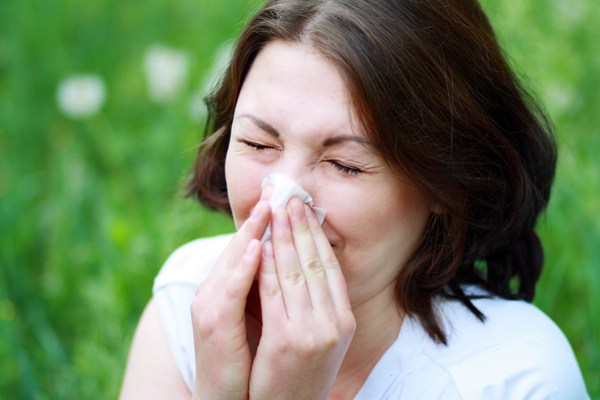- La Feria Community Holds Succesful Business Mixer Event
- Little Nashville to Take Place in Downtown Mercedes
- Lions Basketball Captures District Gold
- La Feria ISD Students Compete in Regional Chess Tournament
- Lions End First Half of 32-4A on a High Note
- La Feria ISD Held Another Successful Parent Conference
- Strong Appearance for Lions at Hidalgo Power Meet
- LFECHS Students Get to Meet Local Actress
- Students Participate in Marine Biology Camp
- Two LFECHS Students Qualify for All-State Band
Surprising Signs You’re Suffering from Allergies and Tips to Manage Them
- Updated: August 7, 2015

(StatePoint) When you think of seasonal allergies, sneezing may come to mind first. But there’s a lot more to allergies than “achoo,” say experts.
According to allergist Dr. Myron Zitt, there are many ways allergies can manifest. Here are a few less obvious signs that you may be suffering from allergies:
• You can’t concentrate: You wake up with a runny nose and can’t stop sneezing but still head into work and struggle through the day. This situation often leads to a present but unproductive employee — something known as “presenteeism” — and unfortunately it’s very common for allergy sufferers.
• Your nose is extra sensitive: Allergy sufferers may experience a heightened response to non-allergic conditions, such as wind, air pollution and dry weather. This occurs when the nasal passages and throat are inflamed from existing allergies, making them more sensitive.
• You feel tired: Allergy symptoms can disrupt sleep, especially for people whose symptoms make it difficult to breathe through the nose. But even a full night’s rest may not ease that feeling of tiredness for some allergy sufferers.
• You’re grumpy: The discomfort of allergy symptoms can interfere with people’s daily lives and lead to irritability.
Do any of the above sound familiar? For those that are suffering from allergies, Dr. Zitt recommends the following allergy survival tips to better manage symptoms.
• Know your triggers: Document your symptoms to get a better sense of your individual allergies. Visit your health care provider, preferably an allergist, to get a proper diagnosis and treatment plan.
• Avoid allergens: Avoid outdoor activities in the morning or plan ahead by wearing a hat and sunglasses to keep pollen away from your face.
• Kick pollen to the curb: Pollen can stick to clothing and shoes. Invest in a good doormat and wipe down your shoes each time you enter. It’s also helpful to shower and change into fresh clothes to completely rid yourself of outdoor pollen.
• Beware of bouquets: If you’re bringing flowers or plants into your home, choose them carefully. For example, sunflowers and chrysanthemums might offer a sweet floral aroma, but they’re known to bother people with ragweed allergies.
• Don’t carpool with pollen: Keep car windows rolled up. Instead of opening windows turn on the air conditioning, or set your ventilation to “re-circulate” to avoid outdoor allergens and irritants.
Additionally, over-the-counter antihistamines can offer relief from symptoms like itchy and watery eyes and a runny nose. One option is Allegra Allergy 24-Hour — now available in gelcap form. It can offer adults fast, non-drowsy relief starting in one hour and staying strong for 24. More information can be found at www.Allegra.com.
Think beyond the runny nose. Allergies can take a toll on your entire quality of life. Take care of yourself by avoiding your triggers when possible and seeking relief when necessary.


